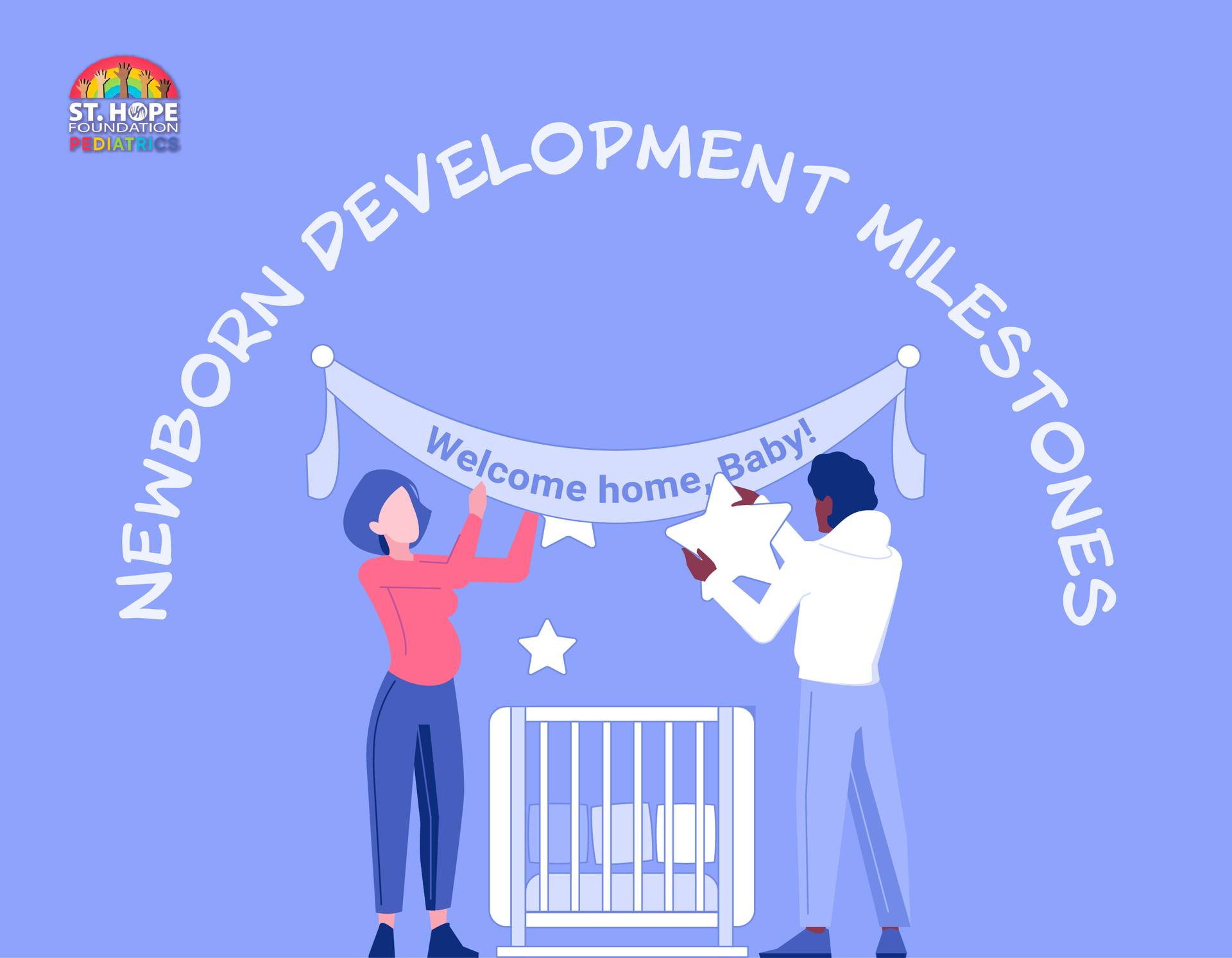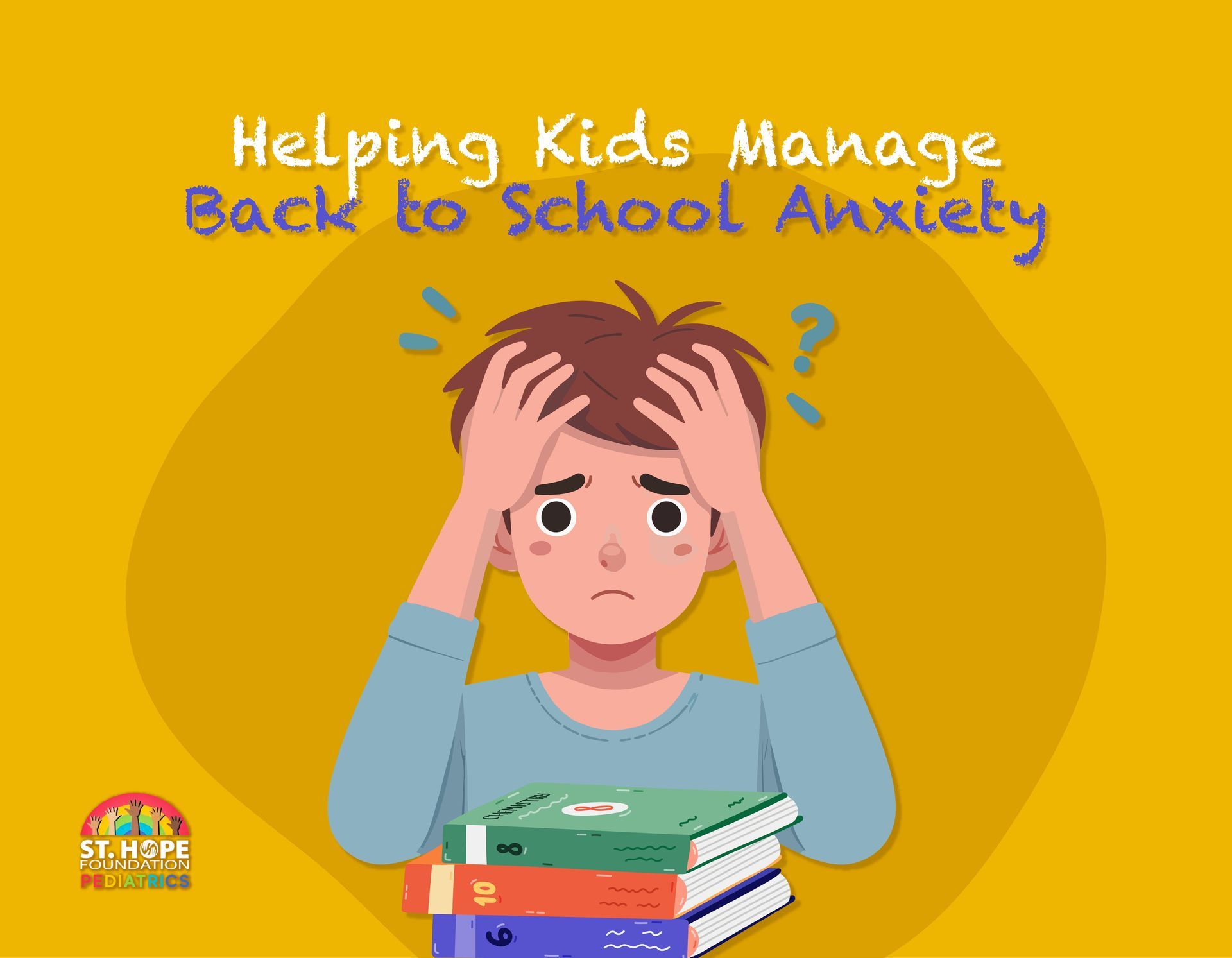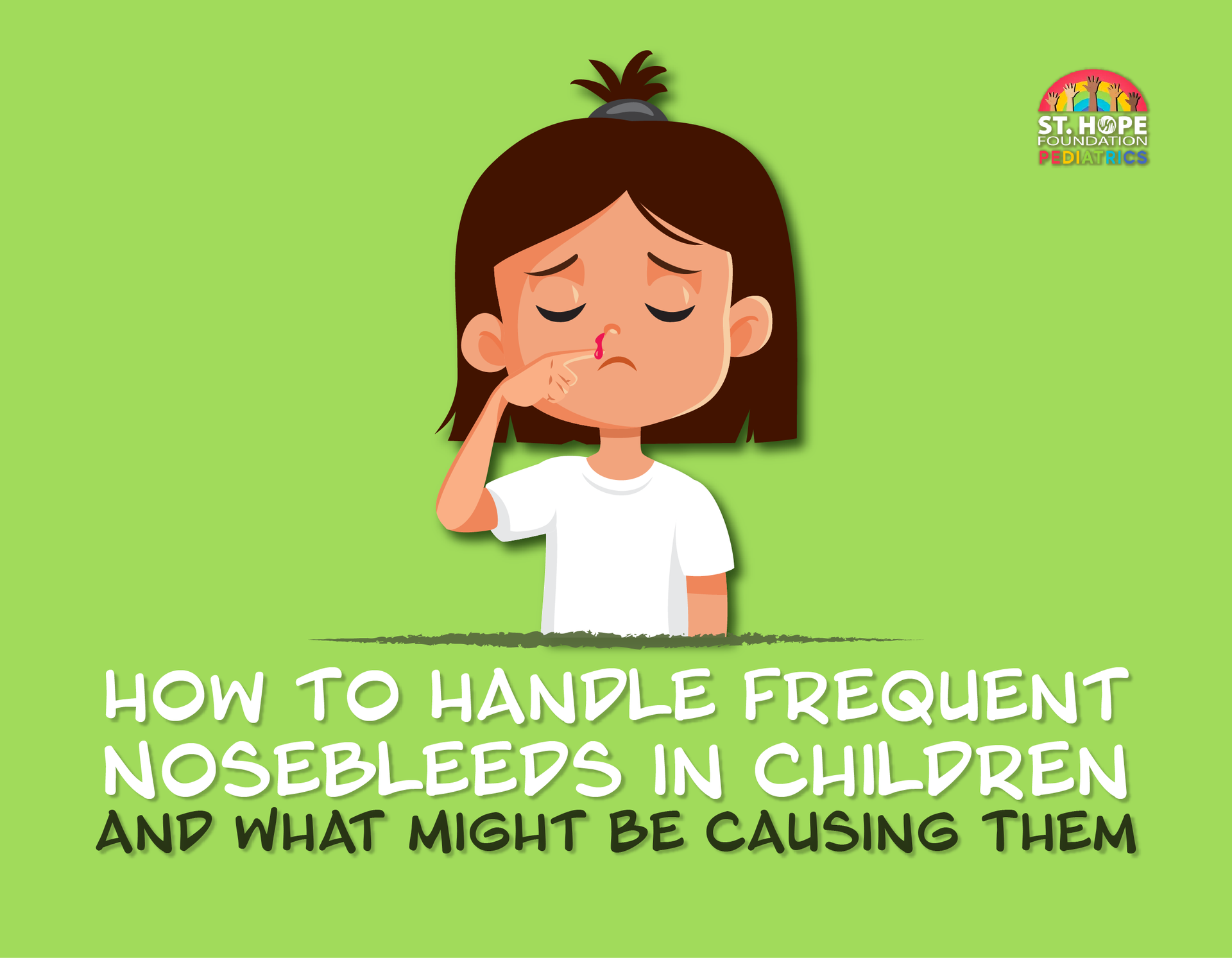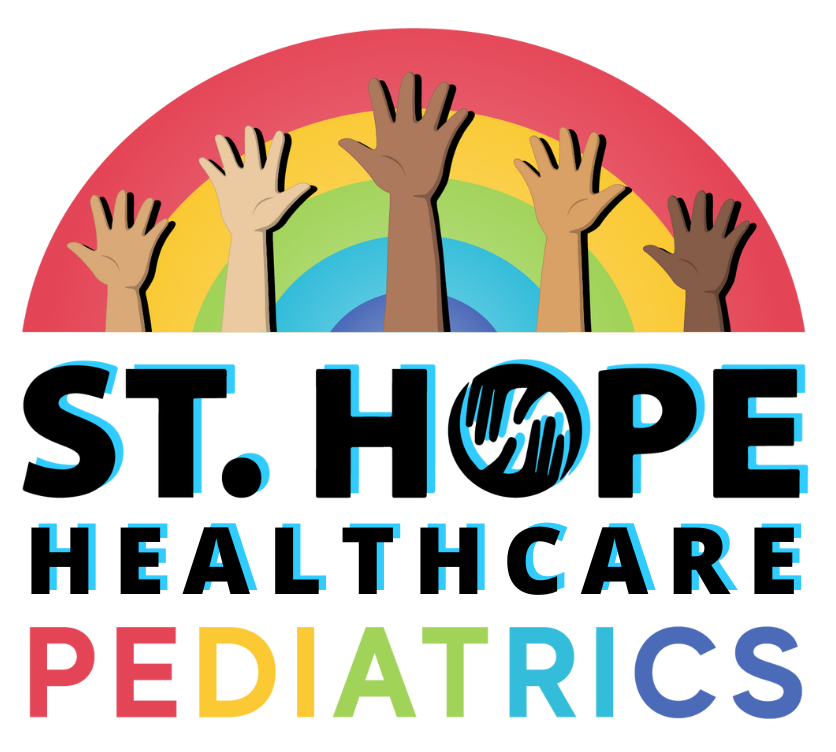
The first year of a baby’s life is filled with remarkable growth and change. As parents, caregivers and loved ones, it’s amazing to watch a newborn transition from an infant into a curious, interactive baby. During these first 12 months, babies will reach a variety of milestones that mark significant progress in their physical, emotional and cognitive development.
Eye Contact and Social Smiles (Zero to Two Months)
One of the first signs that your baby is starting to connect with the world around them is making eye contact. From birth, babies are able to see, but their vision is blurry, so they’re only able to focus on objects eight to 12 inches away—which is roughly the distance they are from the face of the person holding them.
By the end of the first month, you’ll start to notice that your baby begins to hold eye contact for longer periods. Around six to eight weeks, babies begin to develop “social smiles,” where they respond to your face with a smile, which is a sign of early emotional development and bonding.
Cooing and Early Sounds (Two to Four Months)
Between two to four months, your baby will start making cooing noises. These are soft, vowel-like sounds like “oo” and “ah.” This is the beginning of early communication as your baby experiments with their vocal cords. You might also hear some gurgling sounds or little giggles as they become more expressive.
These early sounds help lay the foundation for speech development. Babies at this stage may also start to babble or make noises in response to your voice, which shows they are beginning to understand the back-and-forth nature of communication.
Rolling Over and Tummy Time (Four to Six Months)
At around four months, your baby will likely start rolling over, either from tummy to back or back to tummy. This is an exciting physical milestone that helps them build strength in their neck, arms and core muscles. It’s important to continue tummy time during these months to strengthen their muscles, improve head control and promote proper motor development.
By five to six months, many babies can roll over both ways and may start trying to sit up with support. You may also notice that they begin reaching and grasping objects with more precision.
Sitting Up and Babbling (Six to Eight Months)
At six to eight months, many babies are able to sit up unassisted for short periods of time. This milestone is an important sign of core strength and balance development. At this stage, they may also begin to bounce when held in a standing position or start to show signs of readiness for crawling.
Your baby’s communication skills continue to progress during this period as well. They will begin babbling more, combining consonants and vowels, like “ba-ba” or “da-da.” While these early words may not have meaning yet, it’s a fun stage for parents as they might hear their baby mimicking the sounds of the people around them.
Crawling and Early Exploration (Eight to 10 Months)
Around eight to 10 months, many babies begin to crawl, though some may skip crawling altogether and move straight to standing or walking. Crawling is an important developmental milestone because it helps babies build coordination and strengthen their muscles. It also allows them to explore their environment and begin to practice problem-solving as they figure out how to move and reach objects.
During this stage, your baby will also develop more fine motor skills. They’ll start to pick up objects with a pincer grip (using the thumb and forefinger), helping them to develop hand-eye coordination. Your little one may also begin to explore textures, shaking toys or transferring objects from one hand to another.
Standing and Pulling Up (10 to 12 Months)
Between 10 and 12 months, many babies will start pulling themselves up to a standing position using furniture or other objects for support. This marks an important stage in your baby’s motor development as they start to build the leg strength and balance needed for walking.
Some babies may take their first steps during this period, although others may need more time to develop the confidence and strength to walk independently. It’s important to continue encouraging your baby’s physical activity while ensuring they have a safe environment to explore.
First Words and Social Interaction (10 to 12 Months)
By the end of their first year, many babies say their first meaningful word, such as “mama,” “dada,” or even their name. They may start to understand simple words and commands, like “no” or “come here,” and will likely respond with gestures like pointing or waving.
At this stage, babies are also becoming more social. They will enjoy interactive games like peek-a-boo and may begin to show signs of separation anxiety when away from their primary caregivers. This is a normal part of emotional development as babies start to form stronger attachments.
Walking and More Complex Communication (12 to 18 Months)
While some babies may start walking before 12 months, most will take their first independent steps somewhere between 12 and 18 months. They may also begin using simple phrases like “more” or “bye-bye” and will start to imitate adult behaviors, like talking on the phone or brushing their hair.
As your baby transitions into the toddler stage, you’ll continue to see rapid development in both motor and language skills. They’ll become more mobile, more expressive and more curious about the world around them.
Compassionate and Attentive Care to Help Newborns Along Their Development Journey in Houston, TX
If you ever have concerns about your baby’s development, don’t hesitate to reach out to a trusted pediatrician. At St. Hope Pediatrics, our team of experienced providers is dedicated to helping you navigate the journey of your child’s development.
Contact us today on our website to schedule an appointment or learn more about our services by giving us a call at (713) 778-1300.













